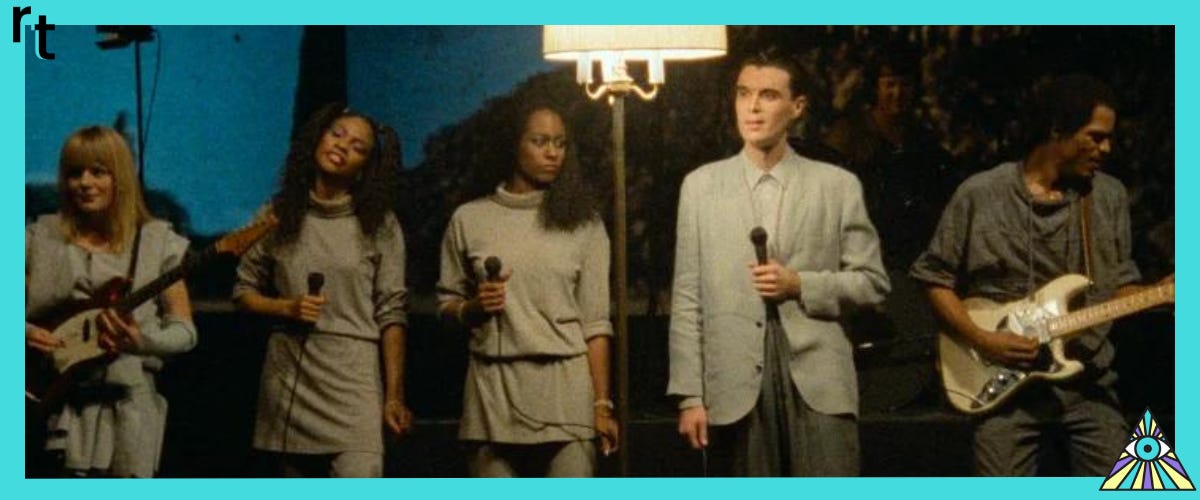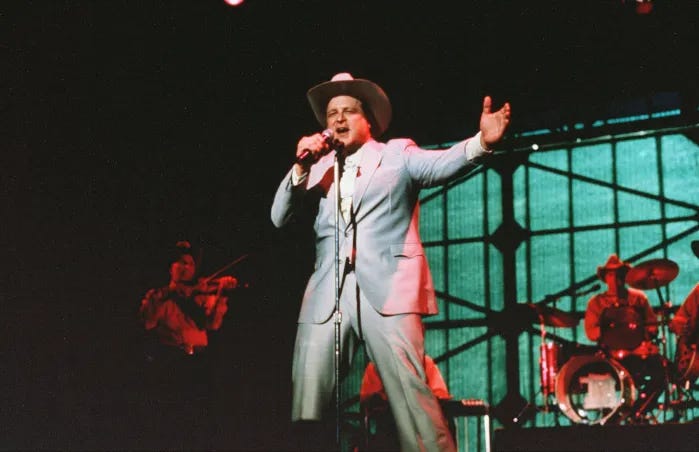Only a few months into dating, Joe was at my apartment helping me take care of laundry or I’m sure some desperate chore I had been putting off. It’s funny how memories of such a crucial time between us become shaped and reshaped. As I sit now, I can’t remember if he was playing a playlist he had recently been listening to regularly or if we had a deliberate conversation about favorite songs. I wish I could recall. I mourn the fact that there are already memories from half a decade ago that I can’t quite put together. Today, even, Joe had mentioned how with the snow he didn’t think it made sense to put candy out this year. I was a little confused. When have we ever put candy out? We live in a third-floor walk-up! But he insisted, some time, we had put a bowl of candy on the stoop of the apartment. Even with his insistence, not even the ghost of a memory reappeared. I swear, not in four years of living here do I remember putting candy out. He swears that we did at least once. Whether we did or not is inconsequential. It doesn’t affect whether we will in the future, doesn’t speak to our ethics or mistakes we made. But there are now two truths to a point somewhere in our relationship, and perhaps those two truths will always exist.
And similarly, Joe either had a playlist going, or I asked him what his favorite song was. In either case, I do remember clearly what happened next — he prefaced a track as possibly, likely, his favorite song. A few seconds in, I knew I was familiar with it, though I wasn’t sure I ever knew the title or artist. It was one of those songs that you hear a million times on TV and radio and movies, and it becomes so ubiquitous that you form your own truth about it without knowing the song’s background. The song was “This Must Be the Place (Naive Melody)” by Talking Heads, a song I had a certain kind of idea about and a band I had a certain kind of idea about more from how they were talked about than from knowing anything about them at the time. And what I remember next is that, honestly, I wasn’t very nice. I wasn’t trying to be mean in any sort of hurtful sense, but I was a little confounded that this song, which in my head was a mainstream, simple song without any notable musicality, was one that had moved him so. I was a sort of working comedian at the time and much of the early days of our relationship featured playful barbing. I don’t think Joe ever walked away from this interaction feeling that I had earnestly hurt or misunderstood him, but presently, I regret a moment where I chose irony over seeing my partner. I roasted him for the song, overexaggerating its perceived qualities (or lack thereof). I think I called it something like a song you hear in a movie that wants you to know you’re on a tropical island or at a “Tiki” bar.
I was so stubborn about my tastes before Joe. To give myself credit, I was 23, and as my cultural tastes really began to solidify in college, so did my streak of being a hater. It was a known joke that I loathed James Cameron’s Avatar, for example. Uncreatively, I tended to refuse anything I deemed as MAN. Joe had a fondness for noir movies, and I gave them a few chances to little avail. I didn’t hate them, but I didn’t like them. I was tired of the masculine hero archetype. And while I never thought Joe had poor music taste, I teased him about not broadening his horizons by centering giants like Springsteen and Dylan or by overhyping hipster bands like Talking Heads. My opposition was never grounded nor stern. I made theater of it. Never mind that I did like David Fincher movies and Fountains of Wayne. I was self-aware of my hypocrisy, but also committed to it, and committed to proving my correctness. It’s something I did as a kid, too. When I was a toddler, I used to hate the song “Everyday People” by Sly and the Family Stone, not because I thought it was a bad song, but because the chorus of a bellowing “AHHHHHHHHHH it’s Everyday People!” that played over a Chevy ad at the time gave me sensory overload. When I got older and got used to the song, I would play-act my former resentment, pantomiming covering my ears, and yelling for it to stop. This past week, I was listening to a CD my dad burned me when I was very little that had that very same track on it. All I feel for this song now is my old distaste for the song wrapped up in deep, deep love.
Joe didn’t try to ever get me into Talking Heads during our relationship, but he would listen to that song here and there. I noticed a few times when he had it on, I’d be gently nodding my head. But if it came up, I’m sure I would continue to joke about how absurd it was that it was his favorite song.
But when you really love someone, as I quite quickly did with Joe, you learn to forgive such things. A little later into our relationship, I got Joe a print that featured a sentence diagram of a lyric from the song, melding his love for “This Must Be the Place,” with his passion for writing. “Home, it’s where I want to be, but I guess I’m already there.” I had never looked at any of the lyrics singled out before, separated from the flutes and synths of the song’s composition. That’s how I feel about Joe, I thought, a simple but important concession.
In February 2020, we took a trip to New York City. Joe had made his own concession that he would see at least one stage or Broadway show with me. I saw David Byrne’s American Utopia was going to be on Broadway while we were there and I pushed for it, wanting to show that I was open to more Talking Heads-adjacent works. Joe declined, his interest in Byrne and Talking Heads minimized. “I saw it when it was in Chicago,” he told me. “It was okay. Our seats weren’t great. I’ve seen it, I’m good.” I wasn’t sure if he was downplaying his interest because I had once rejected him for it, but after multiple attempts to assure him I was down and interested, we settled on going to Sleep No More.
The pandemic began, and I conceded further. We needed ways to pass the time. I wanted to finally watch Silence of the Lambs for the first time and figured — if we were going down the Jonathan Demme road, I might as well finally see Stop Making Sense. Draped across an armchair next to Joe in front of a 36-or-so-inch TV with the overhead lights on, I liked it. I guess I got it more than I loved it. The energy and showmanship spoke to an innate theatricality that I always understood and appreciated. David Byrne was kind of hot. I hadn’t heard some of these songs before, and they were cool. I didn’t know “Burning Down the House,” was them. I didn’t know that song was called “Genius of Love,” and I didn’t know how closely tied it was to Talking Heads. I was starting to understand, even if I didn’t immediately feel drawn to dive in much more.
It was New Year’s Eve and we were deciding what to watch. We weren’t big on celebrating the holiday in any context, but God, 2020 needed to end, and we were desperate for anything to pass the time. I had asked Joe in the week prior — “We’re watching American Utopia when it drops on HBO, right?” He was dismissive about it. “Yeah, yeah, we can watch it.” His interest waned. He was unexcited. I was like, dude! I would like to see it once, and it was filmed by Spike Lee. Is that not enough? I was somehow the one pulling teeth. I was desperate, self-conscious that I made a grave error in making fun of him two years ago. We agreed to watch it on New Year’s Eve.
And then — everything clicked.
From then on, Talking Heads was no longer Joe’s thing, and it was no longer Joe’s former thing that he was less interested in these days. It was our thing.
American Utopia landed something we both desperately needed after the demoralization of 2020. I had lost my job two weeks before Christmas, unsure of what I was going to do or who to be. Joe had started his second and last year of grad school, which was gradually looking like it was going to be entirely remote (it was). We shared this mutual depression and rage about the world.
After watching American Utopia, this was what I wrote:
Imagine it's the end of 2020, and in some way or another, you've died. Before deciding whether you go to Heaven or Hell, you are instead sent to purgatory — but not the purgatory you expected. One where David Byrne is the leader of a troupe that is going to tell you the story of your life, the story of this year, the story of America. And at the end, you don't actually go to Heaven or Hell. Instead, you are sent back to the land of the living. But you have the choice — do you fold, isolate yourself, wander aimlessly? Or do you march on? Do you take the road? Do you seek joy?
In relationships — and in life — we are often terrified of change. We nervously wonder, “What if he changes? What if I change? What if we forget why we were together?” I get scared about how much I have forgotten already about the early days of our relationship, whether because my memory is generally bad, even worse since contracting COVID a year ago, or for reasons unknown. But increasingly, I am scared at the prospect of us changing.
I’ve been with Joe for half a decade as of today. I’ve never been with anyone longer than a year, let alone half of my adult life so far. In many ways, that idea is scary. I hear how people describe long-term relationships — the wondering what they missed out on, what they settled on, what they lost. The pandemic started a year and a half into our relationship. We haven’t known a life together that hasn’t been punctuated by loss on a personal and worldwide scale. Our hands have been forced into changing, our worldviews molded in ways that are largely shattering. My parents split during that time. His grandmother died, and his family cat died, and his family friend — who was the person who illuminated “This Must Be the Place” for a young Joe — died. I lost my job. He left his job. I stopped doing comedy. He started taking antidepressants. I was diagnosed with endometriosis. His mom received devastating health news. The world has lost so many souls, so many stories, family lines, and largely needlessly.
Take nothing for granted, take nothing for granted, we’ve been muttering to each other for the better part of the last year, echoing the mantra of his late family friend.
I’m the Talking Heads champion in the family now. “Joe, did you know that they reissued the Stop Making Sense album, too?! It sounds incredible!” “I think ‘Slippery People’ might be one of my favorite songs.” “Let’s finally watch True Stories.” “Thank you for watching True Stories with me.” “It’s a beautiful song, isn’t it? ‘People Like Us?’” But we gush together. We dance to “This Must Be the Place” in the living room.
I finally pushed for us to go ahead and see Stop Making Sense in theaters before it was too late. He hedged a little, as he did with American Utopia, but we found a time to do it. And I’m such a fucking nerd about it, now. I pre-gamed with the soundtrack all week. We’re watching, and I actually have commentary about the sound mix, about the direction, about what it all means. This is no longer a band I have ideas about, this is a band I know about, and I think about every decision a little differently. Stop Making Sense isn’t just a capturing of the last gasp of a band at the top of their game, it’s lighting in a bottle. You hear all the disparate, independent lines of each instrument, each vocal, coming together in euphoric synchronicity. It’s magic. It’s joy. I’m sitting in the theater chair wondering, “When did I start knowing the words to all these songs?”
We’re walking out of the theater and I’m running my mouth about how Tina Weymouth is really the second lead of the film, and how genius the construction of the track listing is. And all week, I have “This Must Be the Place,” stuck in my head. There’s another lyric that sticks with me. “I love the passing of time.”
I’ve changed in so many ways over the last five years, many ways that are only between me and Joe — ways I needed to change, to rise to the occasion. Ways I am still working on changing. Him, too. It hasn’t always been easy, but I’ve held the belief that as long as there is change, as long as we continue to evolve as people, we’re doing something right. But what I wasn’t prepared for was changing together. Of change only being possible because of one another, of changing through each other while managing not to lose our identity in our relationship. I am Daniella and he is Joe, and though we are now two months into being husband and wife or spouses or whatever, the people we are now are only possible because of how openly we’ve given our hearts to change, knowing we will protect one another throughout the vulnerability that it all entails.
It’s not just Talking Heads. I have big opinions about noir (specifically neo-noir) now. Directors I viewed negatively as hyper-masculine icons have become a cornerstone of our shared love, like Paul Schrader and Michael Mann, and have undoubtedly made me into a more thoughtful and challenged artist. And I’ve encouraged Joe to accept softness in equal measure. We watch Kelly Reichardt movies and he adores While You Were Sleeping and now has Weyes Blood on regular rotation. Hurray For the Riff Raff, a band that was once my favorite band, is now indistinguishably a part of our union. I listen to the song “Life on Earth,” and I feel in my core — that’s Joe. That’s what it is to love Joe. The other day I was playing piano, playing “And So It Goes,” a song that has long broken my heart, and Joe looked at me gently after, musing, “You make me even enjoy Billy Joel.” That’s a huge admission.
I fear the passing of time, but I do love it. I love passing time with Joe, I love that the passing of time means that we grow and we change and we learn. I love that time is interwoven with him; loving him. I look at him, and I finally understand what it means to see someone and think, “This must be the place.”
Wedding photos by Stefan Carlson.
Happy fifth anniversary together and two months of marriage to my love and my home, Joe Engleman.









